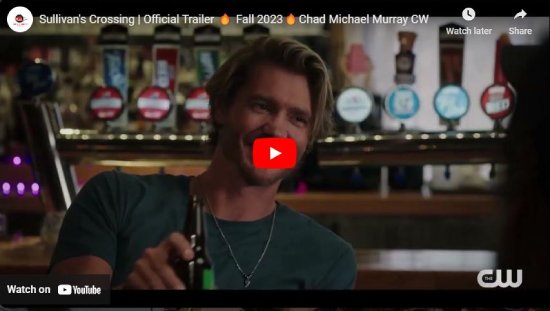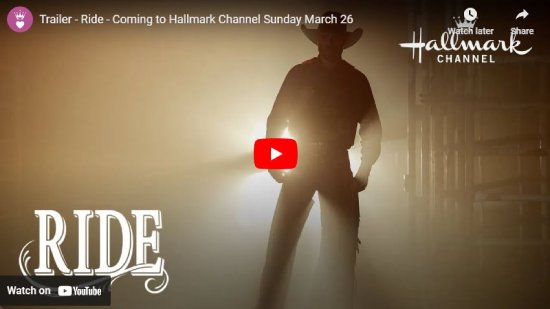It’s all about the shorthand.
Over the quarter-century of a TV and film scoring partnership that has earned screen composers Amin Bhatia (pronounced ah-MIN ba-TEE-ah) and Ari Posner numerous Canadian Screen Award and SOCAN Award accolades (Anne With An E, Detention Adventure, Flashpoint, Let’s Go Luna and X Company – not to mention an Emmy nod for Disney’s Get Ed), the duo has gotten to the point where they can practically finish each other’s musical thoughts when sharing a gig.
“We’ve had a lot of years doing it,” says Posner, who, like his colleague, is based in Toronto. “We’re grateful and surprised it’s gone on this long,” says Bhatia. “We’ve been so grateful for the steady stream of really great projects we’ve both been landing. We really just love working together.”
The duo – who also work individually, but are currently collaborating on the music for episodic TV series Sullivan’s Crossing and Ride – have certainly seen it all, especially with the technological advancements made over the past two-and-a-half decades.
“We started working together at a time when there were no Zoom calls, and no fancy delivery formats like DropBox; where everything could be centralized and people could stay in their basement studios,” Posner remembers. “That helped a lot, because we spent a lot of time in the same room and had offices down the hall from each other.”
Bhatia said their partnership started so slowly that Posner accepted a position at Pirate Sound. “I had a facility – and when Ari got this great offer, he had my blessing,” Bhatia explains about Posner’s 2003 move. “We were in the same building for about a year, but we weren’t getting a lot of response. Ari moved into Pirate, and at that moment, three of the five projects we pitched all came through.
“We were overlapping on four different projects with other writers: it was insane. In this day and age, you get so much overlap, so… we both have a lot of shorthand with each other. We overlap, but we have complimentary styles. We know who’s going to write what type of cue almost immediately. We both love creating a good melody, and variations [of it].”
For both Sullivan’s Crossing and Ride, it’s a spotting session that determines who writes what.
“You decide where all the music’s going to go, make a shopping list of the music cues, and then make some decisions as to who’s going to do what,” says Posner. “We tend to follow storylines, because a lot of TV and film music need theme variations. We can – and have had to – dabble in each other’s sandboxes, but when time is tight, Amin tends to be more the tension and the action guy, and I’m the softer, emotive voice.”
Posner says the duo usually has a seven-to-10-day turnaround to deliver music for an episode, but that time limit can shrink. “We’ve had situations where we’ve pitched a project, don’t get it, and then the person that they did hire – a songwriter, somebody famous – falls through,” says Bhatia. “Then, we get the call, and suddenly we have four days to do what the other person didn’t get done in eight. We’re problem solvers.”
While directors have final approval on film scores, and producers sign off on TV music, Bhatia insists that it’s crucial to identify the executive that’s making the decisions on your music. “You have to know who that point person is,” he says. “Otherwise, you could be writing music that’s getting approved by the wrong person.”
Posner says that the composing sessions for Ride were a little different than Sullivan’s Crossing. “Ride had more of a country tone, and we weren’t getting a lot of notes back: people were pretty happy, trusting us and feeling good about the music,” he says.
“Sullivan’s Crossing had a totally different palate. It was more of an indie band, piano-guitar-and-strings feel. There’s some action and tension, but not tons of it. But the notes and feedback were more challenging, because the showrunner had a very specific vision of what she wanted. So, we had a lot of back-and-forth, long cues, and re-writes.”
Concerns for the future: CueDB, buyouts, AI
The duo harbours some concerns regarding their profession. One is a new software that they say is de-personalizing a personal business. “CueDB is the one many are using in Hollywood,” says Posner. “You post a cue; the client logs on, types in comments on the cue… and none of you have to talk to each other. We’re not enjoying that at all. When you present music, you’ve all got to be in the room, or at least talking in real time, to say, ‘Here’s why we did that.’ And the producer can say, ‘Oh, I see why.’ In some cases now, you get a shopping list of fixes. That goes too far.”
Along with shrinking budgets, a growing concern finds production companies coercing composers to sign contracts that forfeit future residuals, via buyouts. Bhatia says it’s unacceptable. “We just have to fight that,” he says. “Both Ari and I are involved with the Screen Composers Guild of Canada [SCGC] and that’s the number-one concern that we’re dealing with.”
Bhatia says residuals are crucial. “All this stuff is intellectual property,” he explains. “The music that we write, we can’t use this anywhere else. The publishers and the filmmakers make a lot of money off various rights, but you have to share that money with composers, actors, the screenwriter, the director: that’s how the business model works.”
Posner says it’s a matter of survival. “If they’re willing to supply music in a buyout situation, then I don’t see how the composers who come from the previous business model would last,” he says, adding that educating future generations of composers is the key to resolving the issue.
There’s also the ever-hovering spectre of artificial intelligence to worry about. “There’s something called AI Assist, which helps with the drudgery, whether it’s engineering tasks, or putting together a better Excel spreadsheet,” says Bhatia. “We all welcome that, so we can focus being creative. But there’s this side where others are very excited about having the computer do it all.”
Ari Posner feels that stock music may be more threatened than other fields as AI continues its revolutionary impact. “The jury’s still out,” he says.

